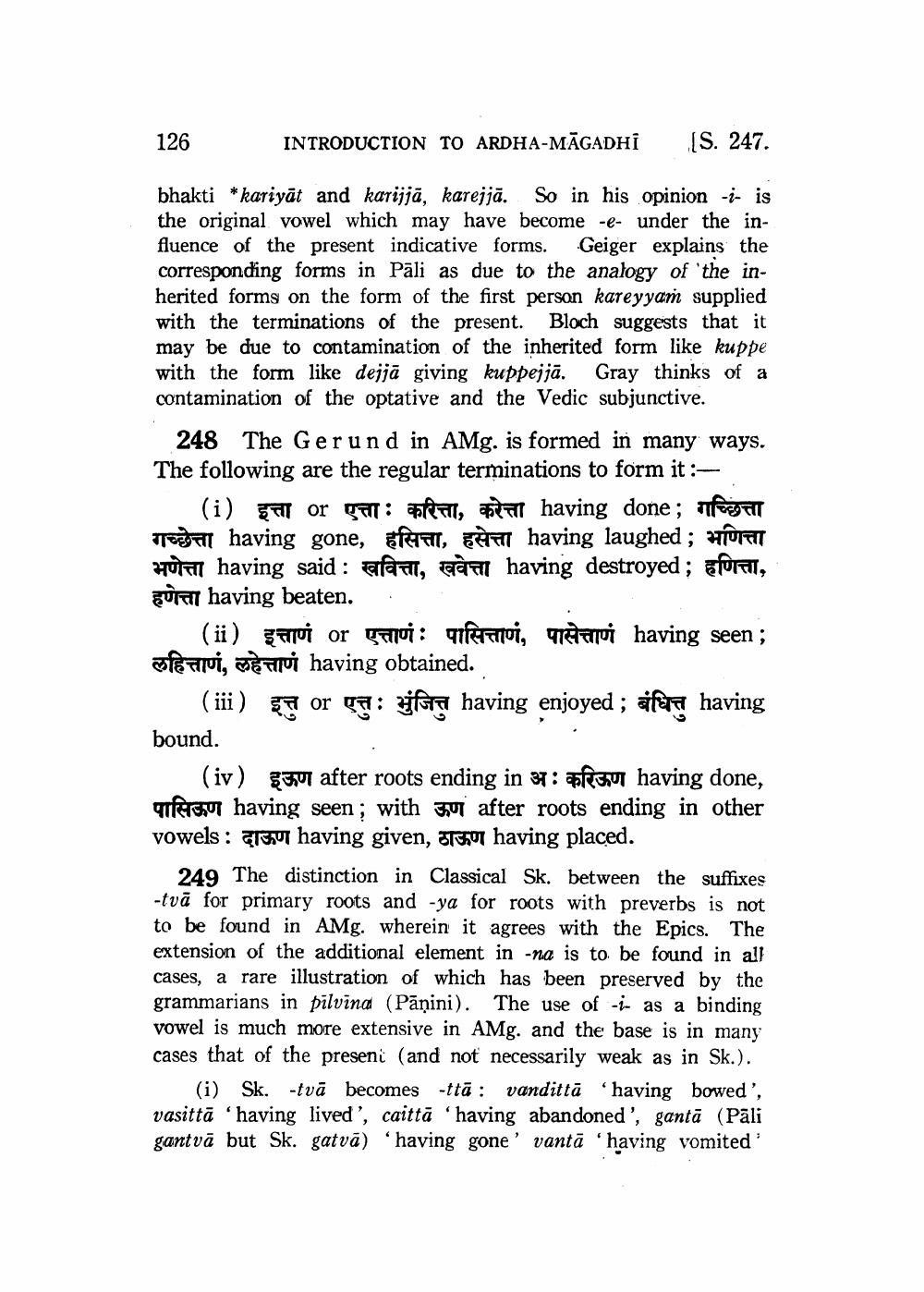________________
126
INTRODUCTION TO ARDHA-MĀGADHI
(S. 247.
bhakti * kariyāt and karijjā, karejjā. So in his opinion -j- is the original vowel which may have become -e- under the influence of the present indicative forms. Geiger explains the corresponding forms in Pāli as due to the analogy of the inherited forms on the form of the first person kareyyam supplied with the terminations of the present. Bloch suggests that it may be due to contamination of the inherited form like kuppe with the form like dejjā giving kuppejjā. Gray thinks of a contamination of the optative and the Vedic subjunctive.
248 The Gerund in AMg. is formed in many ways. The following are the regular terminations to form it :
(i) El or get: Rall, and having done; forgal TOT having gone, FATIT, IT having laughed ; IUITIT TUTTIT having said : afati, EFIT having destroyed; foreil, BŪTIT having beaten. ..
(ii) garui or gevi: franci, mai having seen ; DEFINI, JE TIU having obtained.
(ii) इत्तु or एत्त : भुंजित्त having enjoyed ; बंधित्त having bound.
(iv) in after roots ending in 37: afisut having done, nisur having seen; with sup after roots ending in other vowels : 1, having given, or having placed.
249 The distinction in Classical Sk. between the suffixes -tvā for primary roots and -ya for roots with preverbs is not to be found in AMg. wherein it agrees with the Epics. The extension of the additional element in una is to be found in all cases, a rare illustration of which has been preserved by the grammarians in pilvina (Pāṇini). The use of -:- as a binding vowel is much more extensive in AMg. and the base is in many cases that of the preseni (and not necessarily weak as in Sk.).
(i) Sk.-tvā becomes -ttā: vandittā 'having bowed', vasittā 'having lived', caittā 'having abandoned', gantā (Pāli gantvā but Sk. gatvā) 'having gone' vantā 'having vomited




